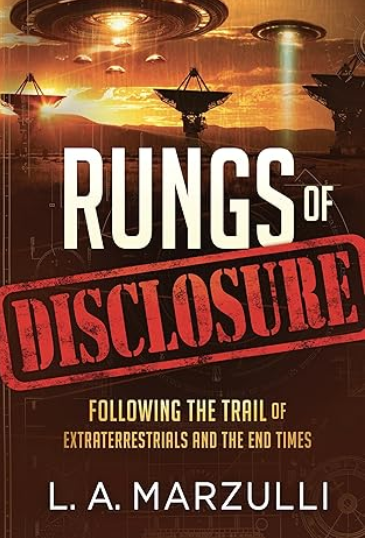Vatican to Open 5 ‘Sacred Portals’ This Christmas Eve
The Vatican’s announcement of opening sacred portals for the first time in 25 years has raised eyebrows and sparked intrigue. Set to coincide with the 2025 Jubilee Year, the ceremony involves the opening of five “Holy Doors” at ancient basilicas, with one “hypothetical” door at Italy’s Rebibbia prison. While the Catholic Church claims this tradition upholds a “doorway to salvation,” one can’t help but question: What exactly is the Catholic Church attempting to achieve with this elaborate ritual? And more importantly, where in the Bible is any of this remotely supported?
According to The Daily Mail, the Holy Doors are located at some of Rome’s most venerated basilicas, such as St. Peter’s and St. John Lateran, and are ceremonially bricked up and unsealed only during Jubilee Years. Pope Francis, who initiated the ritual on Dec. 2, describes it as a time to focus on hope and spiritual renewal amidst global crises like war, the lingering effects of COVID-19 and climate change. He has also extended this symbolic act to prisoners, aiming to deliver a message of hope. The Jubilee Year’s theme, “Pilgrims of Hope,” reflects these aspirations.
Breaking News. Spirit-Filled Stories. Subscribe to Charisma on YouTube now!
While the Pope’s sentiment is admirable, the ritual itself is baffling. The “opening” of doors—requiring the removal of brick walls—is described as a “symbol of salvation,” but this imagery finds no precedent in Christian Scripture. Nowhere in the Bible is there a mention of “Holy Doors” that must be ceremonially opened to signal divine grace. If anything, Jesus Christ Himself declared, “I am the door. If anyone enters through Me, he will be saved” (John 10:9). This verse proves that access to salvation is found in faith in Christ, not through elaborate rituals or symbolic structures.
This glaring lack of biblical foundation raises questions about the origins of such practices. The Jubilee tradition, first Christianized by Pope Boniface VIII in 1300, appears to be rooted more in medieval Catholic innovation than in scriptural truth. While proponents argue it inspires hope and encourages acts of mercy, others may see it as a distraction from the simplicity of the gospel message.
The Portal Debate: Ritual or Something More?
Adding another layer to this mystery is the broader conversation about portals—spiritual gateways between realms. Nephilim expert, author and researcher L.A. Marzulli has long explored the concept of supernatural portals, particularly in the context of biblical prophecy and spiritual warfare. Marzulli points to examples like Daniel 10:13, where an angel is delayed by the “prince of Persia,” a demonic principality, as evidence of unseen battles in the heavenly realms. He warns that portals may serve as entry points for spiritual entities, both good and evil, influencing events on Earth.
Order L.A. Marzulli’s book, “Rungs of Disclosure” on Amazon.com!
“There are gateways and portals over the Promised Land, there’s no doubt about that,” Marzulli states, emphasizing their role in supernatural activity. He connects these phenomena to the ancient Nephilim and suggests that portals could be conduits for demonic deception in modern times. According to Marzulli, these portals are not merely the stuff of speculation but are deeply tied to end-time prophecies, where spiritual forces seek to deceive even the elect (Matt. 24:24).
Given Marzulli’s warnings, could the Vatican’s Holy Doors be more than symbolic? Are they inadvertently engaging in a spiritual practice they may not fully understand? The Bible warns against rituals and practices that open the door—literally or metaphorically—to spiritual forces outside God’s will. If these “Holy Doors” are seen as spiritual gateways, one must ask: What, or who, might come through?
Where Does This Leave the Body of Christ?
Christians should approach this development with discernment. While the Catholic Church claims these rituals encourage spiritual renewal, they risk obscuring the simplicity of the gospel. Jesus’ sacrifice on the cross was “once for all” (Heb. 10:10), and His Resurrection opened the ultimate “door” to eternal life. No amount of brick-removal ceremonies can add to that truth.
Moreover, Marzulli’s insights serve as a cautionary reminder that we are engaged in a spiritual battle, one that requires vigilance. Rituals like the Holy Doors may be well-intentioned, but they should not distract from the centrality of Christ’s finished work or inadvertently open pathways to spiritual deception.
As we observe the unfolding of these events, let’s remember that our hope does not rest in rituals, traditions or even the opening of physical doors. It rests solely in the person and work of Jesus Christ, the true doorway to salvation. Anything else is, at best, a distraction—and at worst, a potential gateway to forces we are not called to engage.
Join Charisma Magazine Online to follow everything the Holy Spirit is doing around the world!
James Lasher is staff writer for Charisma Media.





























































